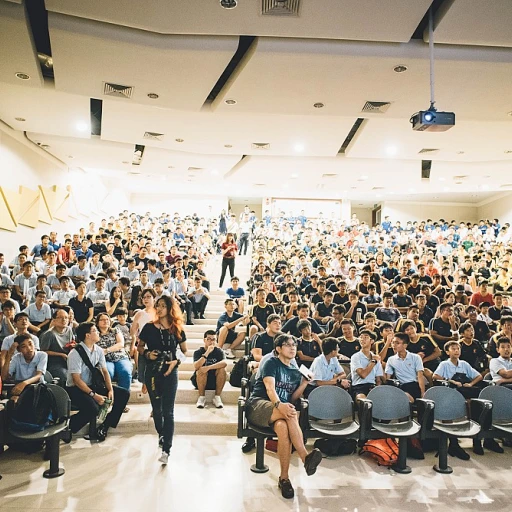
The Rise of Temporary Work
Embracing the Shift in Employment Patterns
The recruitment industry is witnessing an undeniable shift towards temporary work, a trend significantly intensified by evolving labor market conditions. Temporary positions are not merely a stopgap solution but are rapidly becoming a preferred choice for companies aiming to adapt to fluctuating business demands. The growth of the light industrial sector and healthcare staffing reflects this shift, with staffing firms transforming their hiring processes to keep pace. This change is largely driven by the need for flexibility, both for employers and job seekers. Companies are seeking agile staffing options to navigate the unpredictable demands of the post-pandemic era. On the flip side, workers are gravitating towards positions that allow them to maintain a healthy work-life balance, focus on mental health, and avoid the constraints of traditional 9-to-5 roles. Moreover, traditional industries like healthcare and logistics are experiencing a surge in temporary staffing, as they address short-term labor force challenges and adapt to the immediate needs of the market. In a rapidly diversifying job market, employers and candidates alike are seeking streamlined recruitment processes to enable seamless transitions between roles, making talent acquisition an essential component of successful hiring strategies. As a result, the recruitment industry is bracing for its very own evolution. The evolving dynamics of blue collar vs. white collar work further illustrates these shifting work patterns, highlighting how both sectors are embracing temporary employment trends. The demand for top talent continues to soar, with an emphasis on skills based hiring and specialized expertise. In this context, the industry will increasingly rely on robust data analytics to identify job market trends, align candidate skills with temporary roles, and enhance the overall candidate experience.Technological Advancements in Recruitment
Embracing New Technologies in Recruitment
The recruitment industry is swiftly evolving, driven by technological advancements that reshape the way staffing firms and companies identify and engage with top talent. Technology has become an integral part of recruitment processes, redefining the labor market and enhancing the candidate experience.
In this new era, technology is leading recruitment by automation. Tools such as artificial intelligence (AI) and machine learning are fundamental in analyzing large datasets. They assist recruiters in making informed decisions by predicting hiring trends and matching skilled candidates to the most suitable positions. This not only speeds up the recruiting process but also increases the chances of securing the right talent for each job opening.
The rise of remote work has necessitated a shift to virtual-based hiring processes. This trend was notably accelerated during the pre-pandemic years and continues to see significant growth. Video interviews and digital onboarding have become the norm, providing flexibility to both candidates and recruiters. The digitalization of recruitment allows for a broader reach, enabling companies to tap into a global talent pool.
Moreover, light industrial sectors are capitalizing on these technological advancements. With healthcare staffing and other sectors experiencing high demand, the ability to efficiently match job seekers with appropriate roles is crucial. The ability to swiftly adapt to these changes marks a competitive advantage for staffing firms and companies aiming to thrive in this dynamic market.
However, embracing these technologies comes with its own set of challenges. Recruiters must navigate the complexities of digital tools while ensuring that the overall candidate experience remains seamless and personalized. This balance is critical, as it influences the long-term reputation of companies within the staffing industry.
To enhance your understanding of these evolving dynamics in recruitment, consider exploring the shifts in the gig economy, which further elucidates how technology is changing labor strategies across various sectors.
Skills in Demand for Temporary Positions
Essential Competencies for Short-Term Opportunities
The temporary work landscape is witnessing a shift in the required skillsets, driven by the dynamic nature of the job market and the rise of remote work. With the gig economy gaining momentum, companies are increasingly leaning towards skills-based hiring to ensure they bring on board top talent who can swiftly adapt to evolving work environments. Let’s dive into the skills that are becoming crucial for candidates seeking temporary positions.
- Adaptability: In a fluctuating labor market, adaptability is paramount. Workers who can quickly pivot and adjust to new roles or project expectations are extremely valuable.
- Technological Proficiency: With more companies adopting digital tools, understanding the latest recruiting technologies and platforms — as explored in our piece on technological advancements in recruitment — is becoming increasingly important.
- Soft Skills: Despite the surge in digital tools, human-centric skills like communication, teamwork, and problem-solving remain in high demand across various industries.
- Industry-Specific Skills: Certain sectors, such as healthcare staffing and light industrial work, require specific competencies. Understanding the nuances of these industries can give candidates an edge.
Moreover, staffing firms and recruitment agencies are utilizing data-driven insights to understand emerging hiring trends. For example, post-pandemic hiring has seen growth in healthcare roles, remote job postings, and positions that demand cross-functional expertise.
This evolution is challenging staffing companies to refine their talent acquisition strategies, focusing on the long-term candidate experience and enriching their talent pools with individuals equipped with these in-demand skills. As the staffing industry continues to grow, keeping a keen eye on these skills-based hiring trends will be crucial for both job seekers and recruiters.
In the constantly shifting landscape of employment, ensuring you are prepared for these skill requirements can enhance job prospects and career growth. To explore how these shifts are transforming the future of work, embrace the shift and stay informed on emerging trends.
Challenges Faced by Recruiters
Recruitment Challenges in a Shifting Job Landscape
As the recruitment industry undergoes significant transformations, one of the most pressing challenges facing staffing firms and recruiters is adapting to the dynamic labor market trends that have emerged in recent years. The rise of temporary work has altered traditional hiring approaches, and recruiters must now navigate a complex web of labor force demands, candidate preferences, and evolving job market conditions.
Staffing companies are finding it increasingly difficult to source top talent as the market gets fiercely competitive. The move towards remote work and skills-based hiring has broadened the talent pool, but identifying candidates with the right skills and adaptability for temporary positions remains a challenge. The need for skills in diverse fields such as healthcare staffing, light industrial work, and mental health services continues to grow, creating further pressure on recruitment practices.
Another pressing concern for recruiters is maintaining an optimal candidate experience in an ever-changing job landscape. Temporary job seekers expect quick and efficient placement processes, which necessitates the integration of advanced technology and data-driven recruitment solutions. However, this reliance on technology also poses challenges in terms of adoption and training within traditional recruiting structures.
Furthermore, addressing the mental health and well-being of workers is gaining recognition as a critical aspect of talent acquisition strategy. As companies adapt to hiring trends that emphasize flexibility and short-term staffing, they must also consider the long-term impact on worker satisfaction and productivity. This delicate balance requires a nuanced understanding of worker needs and proactive engagement strategies.













